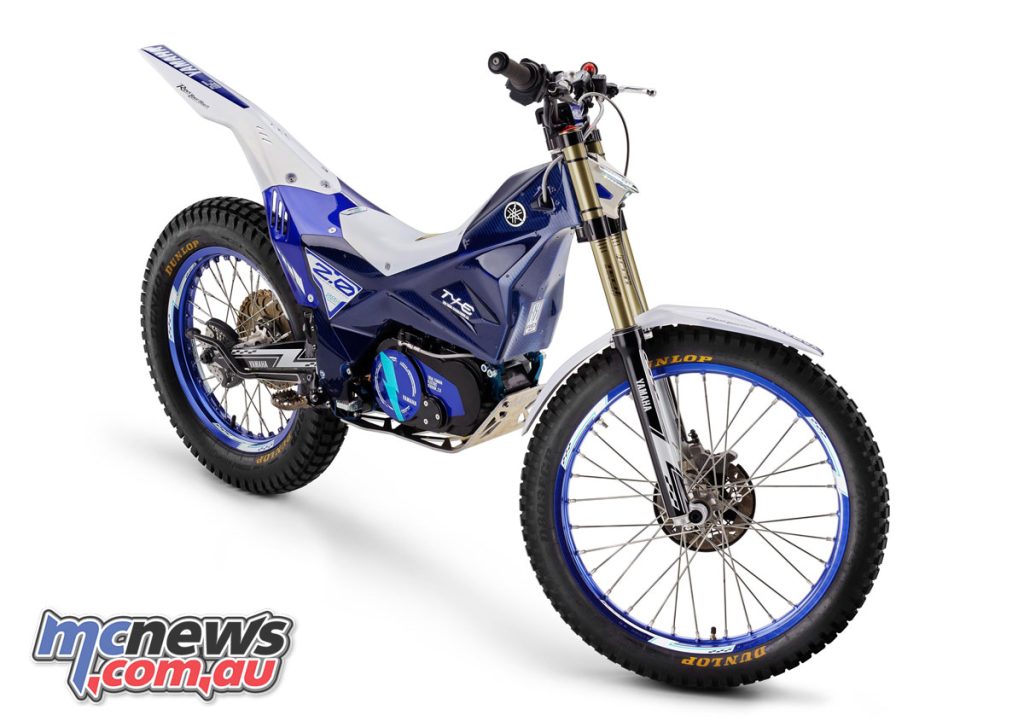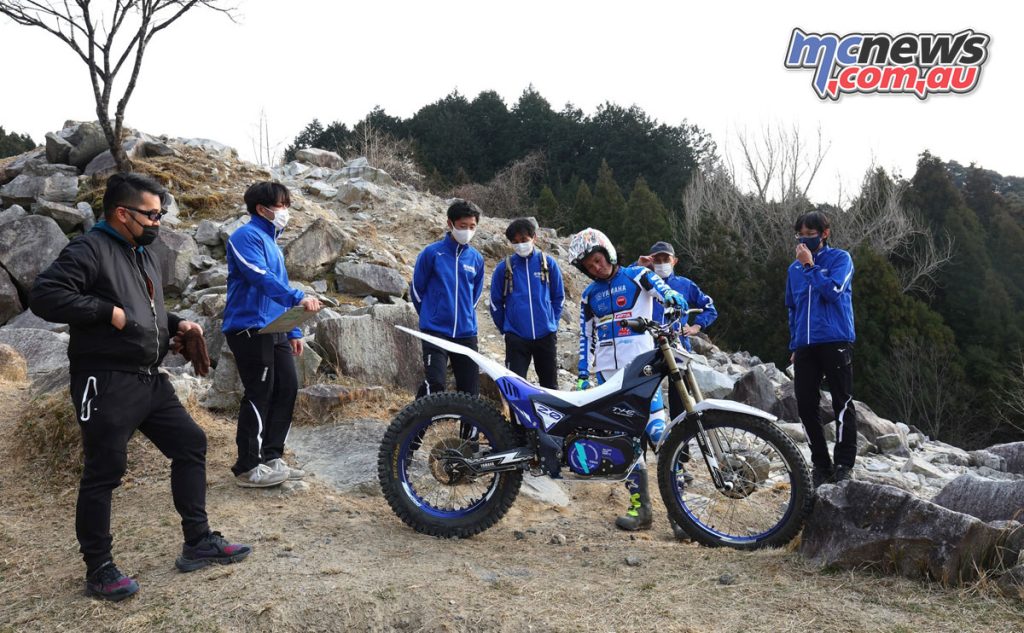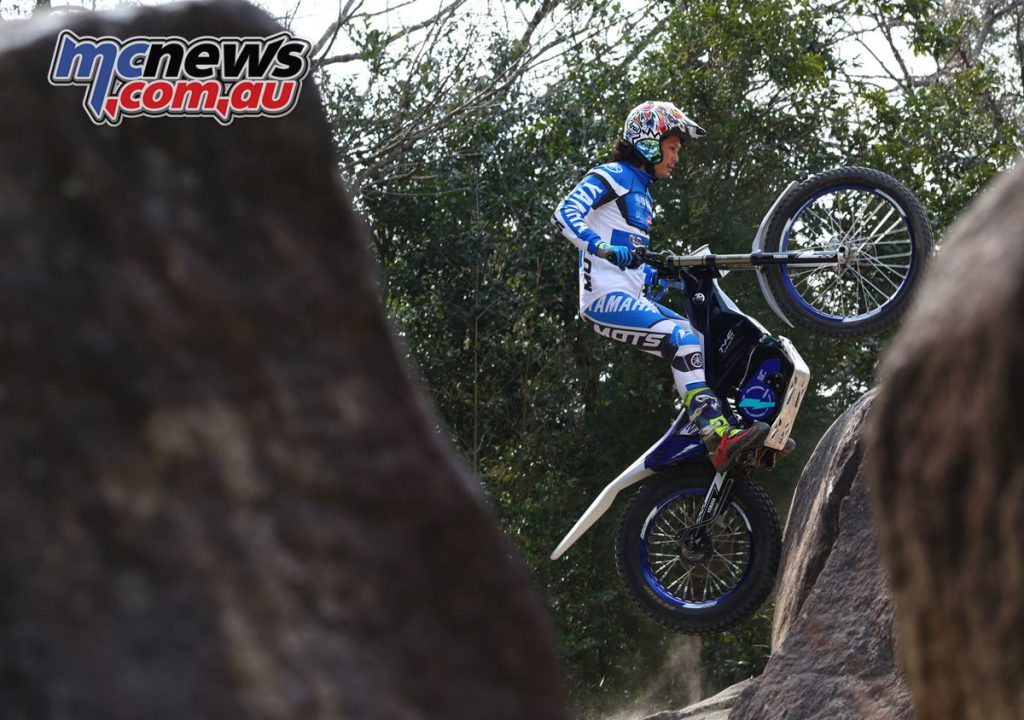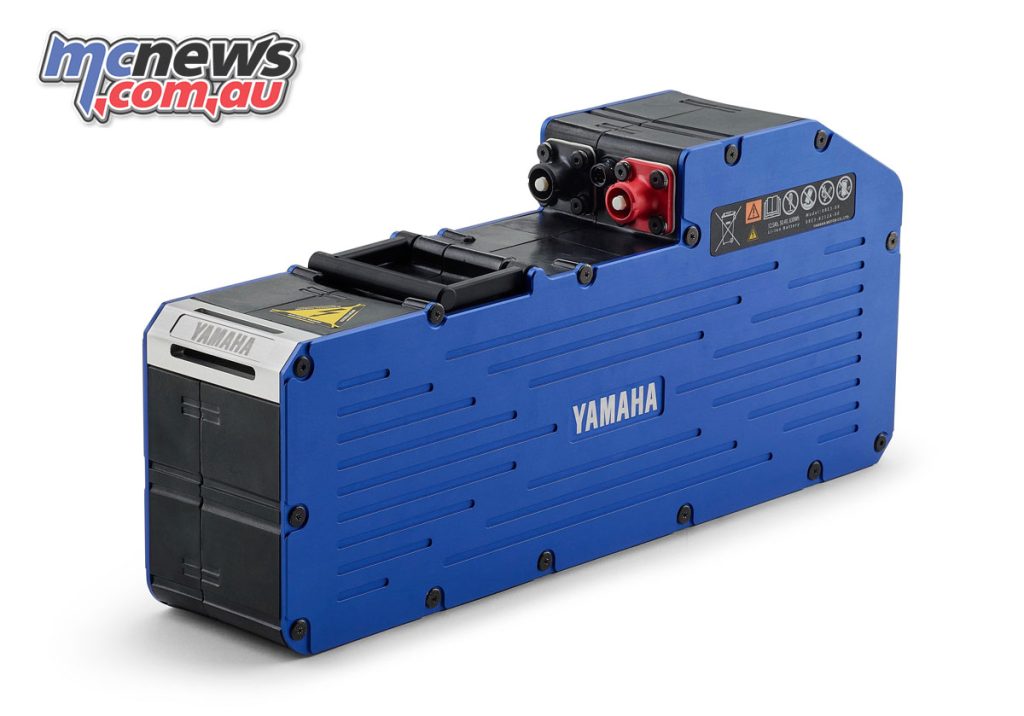Yamaha TY-E 2.0 electric trials bike
Yamaha’s TY-E 2.0 electric trials bike is a project designed to promote carbon neutrality, while offering competitive EV-powered fun, with Takeshi Toyota, lead developer, sharing some further details.

The TY-E 2.0 is also scheduled to participate in several rounds of the 2022 FIM Trial World Championship alongside other electric and gas-powered models, where range limitations are less of an issue.
“Electric vehicles are often spoken of in an environmental context, but they have their own unique points of appeal, like the output characteristics they are capable of, for example,” says Takeshi Toyota, the lead developer of the TY-E 2.0. “They have the potential to deliver more fun and performance than current internal combustion engines can if we move away from trying to make them all-conquering and instead narrow things down and focus on specialisation.”
As one route toward achieving that goal, he is looking to demonstrate the possibilities within electric powertrains through trials competition, where long range is not a vital factor.
Toyota’s challenge began in 2018 when he and a small group of likeminded engineers began developing an electric trials bike under an in-house program called “Evolving R&D,” which allows and encourages Yamaha Motor employees to undertake R&D pursuits of their own choosing.
After some time, the results of their work and its future potential were recognized by the company and the development of an electric trials bike kicked off as an official project. In 2018 and 2019, Yamaha Motor entered the FIM Trial-E Cup with the first TY-E and finished as the runner-up for two consecutive years.

“Because we were aiming to be the best in the world, it was a very frustrating and disappointing way to end,” confesses Toyota. But today, three years later, the second version of the TY-E features several updates and upgrades in pursuit of even more fun and greater competitiveness.
Last year, the FIM announced a change in its regulations for trials, gradually phasing out the Trial-E Cup series solely for electric vehicles and bringing mixed competition between electric and gasoline-powered entries to the 2022 Trial World Championship, where Yamaha Motor plans to enter the TY-E 2.0 into certain rounds of the six-round series.
“Because of our emphasis on reducing weight, the bike’s current maximum output doesn’t quite reach what internal combustion engines put out,” explains Toyota. “However, we focused on careful control of the electric motor’s performance to compensate for the difference in output.”

The team paid particular attention to the vertical load on the tires and the control algorithms employed with the TY-E 2.0 further enhance the bike’s response and performance in line with the rider’s intentions. The refined control has improved traction by accurately reading the changes in grip—at a level difficult even for top riders to pick up—and optimising the bike’s drive force. “This is a vital key to surpassing internal combustion engines on the world stage,” says Toyota.
The bike has seen significant progress with the new monocoque composite-laminate frame and the battery, which received optimisations for output and capacity. The new unit boasts 2.5 times greater capacity than the previous TY-E’s battery while keeping the weight gain down to around 20%.

In addition to an output density exceeding industry standards, cooling performance has also been greatly improved, giving the TY-E 2.0 the ability to produce high output for sustained periods of time.
Last year, Yamaha reviewed its Environmental Plan 2050 and set a new goal of aiming for carbon neutrality throughout all business activities – including across the life cycles of products – by 2050. The TY-E 2.0 project and its FUN × EV development concept shoulder big expectations as another approach for achieving this goal.























